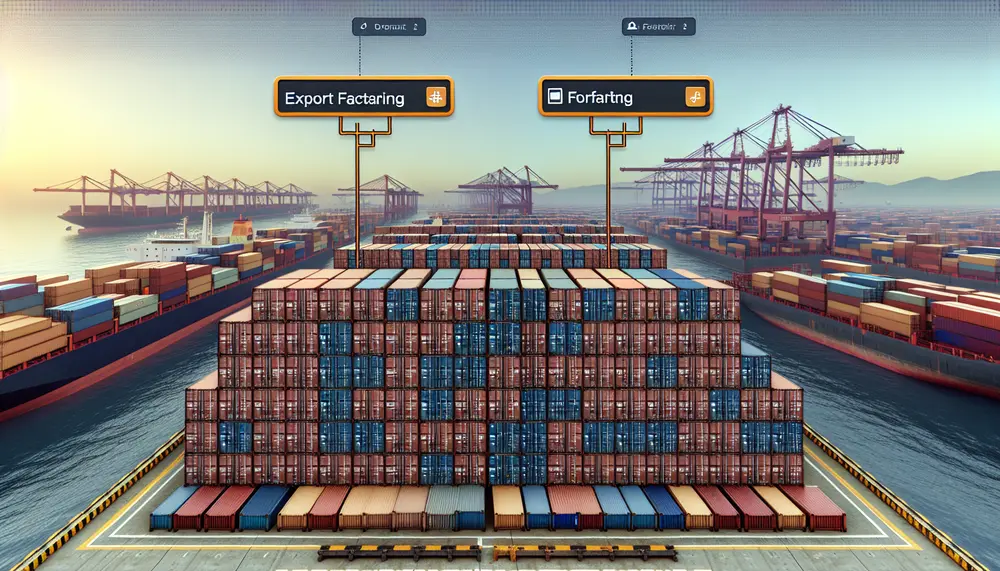Volatility
Volatility
Understanding Volatility in Financial Factoring
Volatility refers to the degree of variation in the price of a financial asset over time. In the context of Financial Factoring, volatility can impact the predictability of the cash flow for businesses. When a company engages in factoring, it sells its invoices to a third party at a discount for immediate cash. The level of volatility in the market can affect the discount rate that factoring companies offer to businesses.
How Volatility Affects Factoring
High volatility suggests a more uncertain future for the prices of invoices that a factoring company purchases. This uncertainty may lead to higher discount rates, which means businesses receive less cash upfront for their invoices. Conversely, a market with low volatility often indicates stability, which might result in more favorable discount rates for selling invoices.
Measuring Volatility in the Factoring Industry
Volatility is typically measured using statistical tools such as standard deviation or variance, which quantify how much prices deviate from their average over a certain period. In factoring, volatility is also assessed by examining the creditworthiness of the debtors and the historical payment behavior related to the invoices sold.
Managing Volatility Risks
Businesses and factoring companies both need to manage volatility risks. Factors might use techniques like dynamic pricing or reserve accounts to mitigate risks associated with high volatility. Businesses might diversify their client base or choose fixed pricing contracts to reduce the impact of volatility on their cash flow.
Volatility's Role in Decision Making
Understanding and anticipating volatility helps businesses make more informed decisions regarding financial factoring. By having insights into potential market fluctuations, companies can better determine when to sell their invoices and at what rate, ensuring they optimize their financial outcomes.
Blog Posts with the term: Volatility

Factoring is a financial strategy where businesses sell their invoices to a third party, the factor, for immediate cash flow without incurring debt. It provides not only accelerated funds but also credit management services and can be more flexible than...

Reverse factoring is a buyer-initiated financing solution that leverages the buyer’s credit to offer suppliers faster, lower-cost payments and strengthen supply chain resilience....

Reverse factoring is a financial tool that optimizes cash flow and supplier relationships but poses complex accounting challenges, particularly in liability classification and disclosure. Its treatment under HGB emphasizes prudence with conservative reclassification practices, while IFRS focuses on derecognition criteria,...

Factoring involves selling accounts receivable to a third party for immediate cash flow, while Confirming (reverse factoring) is when a financial intermediary pays supplier invoices on behalf of the business, extending payment terms. Both services aid in managing different aspects...

Export factoring is a financial service where businesses sell their invoices to a factor for immediate capital, enhancing cash flow and transferring credit risk in international trade. Forfaiting involves selling longer-term receivables to a forfaiter who assumes all risks, turning...

Reverse factoring, also known as supply chain financing, involves a company using a financial intermediary to pay its suppliers early while the buyer settles the full invoice amount later. This arrangement benefits both supplier cash flow and buyer payment flexibility...

Invoice financing in Nigeria is rapidly growing, offering SMEs and contractors flexible cash flow solutions through digital platforms and tailored products amid tight credit conditions. This trend benefits businesses with reliable customers by enabling faster growth, improved supplier relationships, and...

The invoice financing market is rapidly growing, driven by increasing demand for flexible cash flow solutions, technological advancements like AI and blockchain, and global trade expansion. With a projected CAGR of 10.11% from 2024 to 2030, it addresses modern business...

Santander integrates reverse factoring into its core corporate banking, offering tailored, digital solutions that boost supply chain resilience and working capital efficiency....

The Australian invoice financing market is rapidly growing and diversifying in 2024, driven by late payments, regulatory changes, fintech innovation, and shifting business attitudes....

Reverse factoring, or supply chain financing, is a financial tool that enhances cash flow by allowing businesses to pay suppliers quickly through third-party financial institutions based on the creditworthiness of the paying company. This method not only improves supplier relationships...

Reverse factoring, or supply chain financing, is a financial arrangement initiated by the buyer where early payment on invoices is provided to suppliers through a financier. This method benefits all parties involved—suppliers get quicker access to cash at lower rates...

The corporate action factor involves events initiated by a company that change its stock, affecting shareholder value and market dynamics. Understanding these actions is crucial for investors' strategies as they reflect the company's financial health and strategic decisions, influencing investment...

Export factoring without recourse is a financial service where exporters sell their invoices to a factor who assumes all credit risks, ensuring the exporter gets paid even if the overseas customer defaults. This arrangement boosts cash flow and reduces administrative...
